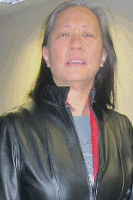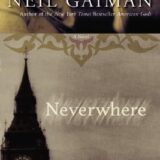Chain Mail is a telephone tag by email round-robin interview session with authors from the Book View Cafe writers collective. Images are links, connecting to biographical information about an author or more information on their current work. Additional information can be found on the contributors page.
Amazing Stories: Publishing outlets are being inundated with queries, submissions and emails from self-published authors who have sold a few books online and now think they are ready for the big time — which they largely aren’t. Additionally, there has been an increase in self-published authors getting together and promoting each others works (often through Amazon reviews, or, increasingly, by starting websites, publishing anthologies billed as “filled with works from #1 best selling SF authors” none of whom you’ve ever heard of). Do you think this negatively affects sales of established authors’ works? How do real authors rise above the fray without looking like they are attacking the growing legions of wannabes?*
(*Ed. Note: This question is not meant to impugn or denigrate those self-published authors who are professional and who prepare their self-published works in a professional manner.)
 MAYA KAATHRYN BOHNHOFF
MAYA KAATHRYN BOHNHOFF
I think it has to impact sales of established authors, if only at the level of the available reading time and resources that our readers have. If I’m reading a book by a self-pubbed author, I’m not reading the latest from Seanan McGuire (not to worry, Seanan, I make time for yours). And ultimately, I think that after the first flush of “oo! I can get this free or cheap!” readers will come back to writers who create a superior reading experience. Writers they can trust to know what words mean and know how to use them. I’m already hearing rumbles of a self-publishing backlash from readers who have felt ripped off after buying a self-published novel only to find that it was unreadable.
I critique and edit a lot of manuscripts by writers who often end up deciding to self-publish. I’ve also read a number of self-published books. Reading some of these novels can be difficult and even exhausting. So many of them are so poorly written that I suspect a lot of casual readers will simply give up. If the writer is flawed craft-wise but tells a good story, I think there will always be readers who think their work is good — and this is true of traditionally published writers whose work is also poorly written and poorly edited.
Which brings me to part two of the question. What can professional, experienced authors do to rise above the fray? We can put out the best work we possibly can. Tell the most coherent stories using the most beautiful, dynamic, and stirring language that we can bring to bear AND we can make sure that our work is edited carefully and thoroughly before it goes to print. That’s hard even for writers with traditional publishers because of all the austerity measures that publishers are on. I’m convinced there’s a lot less thorough editing going on out there because the editorial staff lacks the resources to do it. The latest flap with Raymond Feist’s new eBook is a case in point.
So producing a high level of work that engages the imaginations of our readership is one key, I think. Another is to engage with the readers in a positive way. One of the reasons we started Book View Café was that we were unhappy with the distance between us and our readership. We wanted the experience to be more interactive and we wanted to know what the readers are thinking, what they’d like to see on our website, and read in our pages. One of the things I love about writing media-tie ins is that there’s a huge fan presence on websites and forums. The fans feel as if they own a piece of the action. I’d like to see that extended to non-media tie-in work as well. I also think simply behaving toward other writers and fans alike with professional courtesy goes a long way toward amicable relations all around.
I also think we can try to help the “wannabes” out a bit. When they ask what they can do to be taken seriously, we can give them one really good piece of advice: get someone to read your work for content and get someone to edit you — someone who’s not afraid to draw blood.

BRENDA CLOUGH
Oh, Maya, if only young writers would seek out tough critique. I have had students who got huffy when I pointed out they were using an idiot plot (i.e. when the thing stays in motion only by keeping all the characters idiots). There are none so blind as those who will not see.
What we are losing at this point is the brutal Darwinian winnowing of the marketplace. An aspiring author doesn’t need to face the reality of low readership for a long long time now, if ever. By giving away Kindle freebies, relentless shilling on Facebook and social media, and gaming the Amazon ranking systems, a faux boomlet can easily be created. It may be a while, before readers realize that not every free Kindle ebook is worth the effort of downloading it.
![]()
DEBORAH J. ROSS
I think part of the problem is that young writers see editors as gatekeepers, people they have to please in order to gain admittance to the Club of Publishing. Ditto agents. Acquisitions (or representation) is only one part of the editorial job, and those of us who have had the privilege of working with a good editor know how much that person contributes to the quality of the final product. At her best, an editor sees into the heart of what the writer is trying to accomplish and offers suggestions aimed at making the book more completely and gloriously itself.
We talk about developing effective pitches (very short marketing “hooks” that can be delivered in a minute or two) for agents and editors. I think we can take that same concept and use it to market our work in a way that puts it apart from the vast morass of awful self-published stuff. Attracting a reader’s interest has several parts, one of which is a nifty gimmick-statement. (And most of us feel inadequate to compose these for ourselves, which is why it’s great to do it for one another.) Next comes the bit where we also communicate that we’re established professionals, and we give the reader something for free. That could be a sample chapter or a blog post about how the book came about or an interview or something else. Something that helps the reader to decide if this nifty-concept has substance behind it.
![]()

KATHARINE ELISKA KIMBRIEL
Ditto what has been said. It’s hard to know how to add to all these great comments that I wish I’d said myself. One thing I felt I could do was join a group who felt as I did — that we wanted not just another ebook storefront, but to create a place where we could tell total strangers, “Yes, the books from this site are in Sturgeon’s 10% — they are quality by writers who have faced professional editors and survived!” And we can say this even if we haven’t managed to read a book by that author. I am continuously delighted as I work my way through the Book View Café list at the quality, variety and sheer inventiveness of my fellow members.
We can communicate this by sharing the load at BVC, and also by reviewing good books. I can’t waste time reviewing bad books — there are people who enjoy that. I don’t want to rip into a book, whether it’s something tossed off for a few laughs or bucks, or someone’s precious heartsblood. But I can tell people that a book is definitely worth their time, and why I think so. I’m beginning to read self-published books, and review them. I want to talk about books that should have a wider audience, and let people know that good self-published (self-pubbed?) books are out there — but those books may not be the ones with the fanciest covers or publicity. Still, I think the constant barrage of free books has made the reader a bit leery of “Free.” Good writing will benefit, if we are honest and share the news about great books.
![]()
 PHYLLIS IRENE RADFORD
PHYLLIS IRENE RADFORD
Two years ago we were told by “those in the know” we had to flog the social media with our promotional material. Now we see a backlash from people who are tired of seeing nothing else but self promotion. They call it pimpage with a reason. Certainly those of us who have survived the editorial process in traditional publishing, and respect it, have to self promote. But we need to establish a web presence for ourselves first. We need to engage our readers in our blogs and forums about other things, including the process of writing and not just the demands to go out and “BUY MY BOOK.”
People who are self publishing because they haven’t been able to break the barriers at the gate of traditional publishing are not accepting the idea that the barriers are there for a reason, to weed out books that are weak in plot, character, and or craft of writing. When the world refuses to beat down their doors to buy their self published novels, I hope they are smart enough to step back, take stock, and reassess their process. Maybe take a writing class or two.
The cheap and easy thrill of free books is wearing thin. There will always be those who will read anything free and never pay — that’s why pirate sites flourish. But for honest folk who want a good read, free or super cheap is no longer the solution.
When I first bought my Nook, Barnes and Noble had free book Friday. A new free book each week. At first they tended to be older backlist books coming out to promote later books in the series. That’s good advertising. Then the list got inundated with self-published books that didn’t meet the same quality. So much so that free book Friday has become Bargain of the day. Most are $1.99 – $2.99. All seem to be previously published and re-released by the author. The tide is turning.
Readers who care about what they read, who use e-readers to save time in busy schedules, are going to re-set the current mode for us. For the better.

VONDA N. MCINTYRE
I don’t blame new writers for self-publishing. Most writers do (as Kathi says) put their heartsblood on the page. They give little pieces of their heart to an editor, and the editor leaves it in the slush pile for three years and then loses it. I’m sympathetic to overworked and underpaid editors, but not sympathetic to the lousy manners that have crept into publishing.
A lot of work that goes straight from writer to ebook is badly written. So is a lot of work that goes from writer through editor to print publication. A lot of best-selling work is badly written. The ability of a writer to touch the pulse of a reader doesn’t necessarily correlate with the writer’s ability to write a graceful sentence.
Editing is important, if you get an editor who wants to make your book the best of itself that it can be. Same goes for copyeditors. I’ve been extraordinarily lucky with editors and copyeditors. But we all have horror stories relating to editors who think they can write our books better than we can, which generally speaking they can’t.
As a midlist writer, the only way I can get my backlist to readers is via ebooks. This is especially true of Dreamsnake, which isn’t available via Basement Full of Books and which got tied up in two different publishing meltdowns. Besides, the days when publishers kept midlist SF in print indefinitely are over and gone. As far as I can make out, what commercial publishers are looking for is a copy of the last next best thing.
If they’re the gatekeepers, they’re not doing a very good job of it. They’re not shepherding new writers through several books, allowing a career to build. They’re offloading most of the work of publicity onto their writers. They publish one or two books by promising newcomers and then throw the writer away, or deign to buy another book, if the writer is willing to use a pseudonym and take a first novel advance, which has barely increased since I sold The Exile Waiting, my first novel, when you could live for a year, if frugally, on $3500.
Everything in publishing is changing.
Nobody knows what’s going to happen.
 JUDITH TARR
JUDITH TARR
This is a really important and rather difficult question. The rising tide of the self-published and the sense that “traditional” publishers are a thing of the past has become a meme, and as such, has divorced itself from actual facts or experience—on both sides of the argument. As I’ve said elsewhere, publishing isn’t dead and won’t be dead at any time soon, but the shape of publishing is going through profound changes.
I think our authors’ co-op is one effective way to cope with the rapidly changing landscape. Persisting in writing and producing work of high quality—from basics of plot and character and style to proofreading and copyediting and book formatting—helps us to stand out from the crowd. So does being selective about who joins the co-op. We expect a certain level of craft from candidates, and continue to expect that as we publish more original works in addition to backlist that has already been edited and produced by print publishers. I like to think we’re taking the best of the old world into the new, while letting the worst die a well-deserved death.
What we hope to accomplish by this is for readers to say, “If it’s from Book View Café, I know I’m getting a well-written book, well packaged and clearly readable, without glaring errors. I can trust this group to give good value for my money.” And those readers will come back for more of what we have to offer.
![]()
DAVE TROWBRIDGE
I think it inarguable that Gresham’s Law applies to e-publishing as much as it does to monetary policy. At least in the short run, bad books will drive out good—look at the trouble Amazon is having with spam books. But readers are quickly learning how to spot counterfeit works, and judge the signal-to-noise ratio of an author’s social media presence.
I think a good online strategy for professional authors who want to rise above the fray is encapsulated in Tolkien’s words: “all that is gold does not glitter.” Those who simply try to deliver quality and value whenever they write—tweets, blog posts, book reviews and, of course, their books—will attract, and more important, hold readers.
That’s part of the mission of the BVC blog, and of our members’ participation in other online communities and venues. And it’s working.

SUE LANGE
I can’t add much to this discussion except that it occurred to me that the real gatekeepers in the past have not so much been the editors and publishers, but the authors themselves. Whoever could withstand criticism and return to the drawing board to do better, became a writer.
![]()
LINDA NAGATA
I agree with just about everything Vonda said. Self-published authors are just trying to live their dream and a fair number are succeeding impressively. I’m a self-published author. My two most recent novels were published by me, without having ever been submitted to the traditional marketplace. I felt I had more to gain by retaining control and doing the job myself—but I’ve certainly had to develop a thick skin in the process, because there are still a lot of flaming arrows being launched at “indie” or self-publishers.
It is true that for a reader this is a buyer-beware world—more so, than once upon a time—but ebook samples are a great way to try before you buy, and to winnow out the books not worth your time.
Do I think heavily promoted self-published books negatively affect sales of established authors? Maybe. On the other hand, maybe these books are appealing to a different readership than those who have long made up the core readers of the SF genre—and maybe these new readers will ultimately become our readers too.
As to the last part of the question, how do “real” authors rise above the fray…? In the end, it’s up to the readers, not the writers, to decide who stands out, who gets decent sales. The thing that matters most in book sales is good word-of-mouth. If you like a book, please talk about it, review it, get your friends to buy it and read it too. There is no better way to help the authors you like stay in business.

JENNIFER STEVENSON
I think it’s a fantasy many conventionally published authors have, that readers give a flying swiss petunia about “quality,” as we like to call it. You know. The things we work hardest over—good grammar and punctuation, clean copy, error-free continuity, well-built worlds, blah blah blah. Conventional publishing has certainly put out its percentage of books that might not pass a quality review, say, at Book View Café. And do readers care? Nope.
Writers who haven’t made it past the gatekeepers in New York may feel that publishing is a Secret Club with irrational rules and mean members, and they have a fair amount of justification for feeling that way. The ins and outs of producing a book in cooperation with a committee, which is conventional publishing, are tricky enough. Add the really important stuff—the way authors are paid, for example—and now everybody thinks it’s an evil conspiracy.
I was going to pass on this question, but I feel someone has to say, “Give the noobs a break.” Some of them are selling better than I ever did with New York. If I stick my nose in the air about their misuse of punctuation, do I look smarter? Do I look more professional? Am I even right? The customer is always right. If you want to write a flawless novel, you can do that in your bedroom. If you want to sell it, talk to the people who are buying novels. I get pretty sick of authors beefing about the stupidity of publishing, and I are one of those. I have no patience with authors who beef about the stupidity of readers.
Chris Dolley and Pati Nagle chose to pass on this question.














